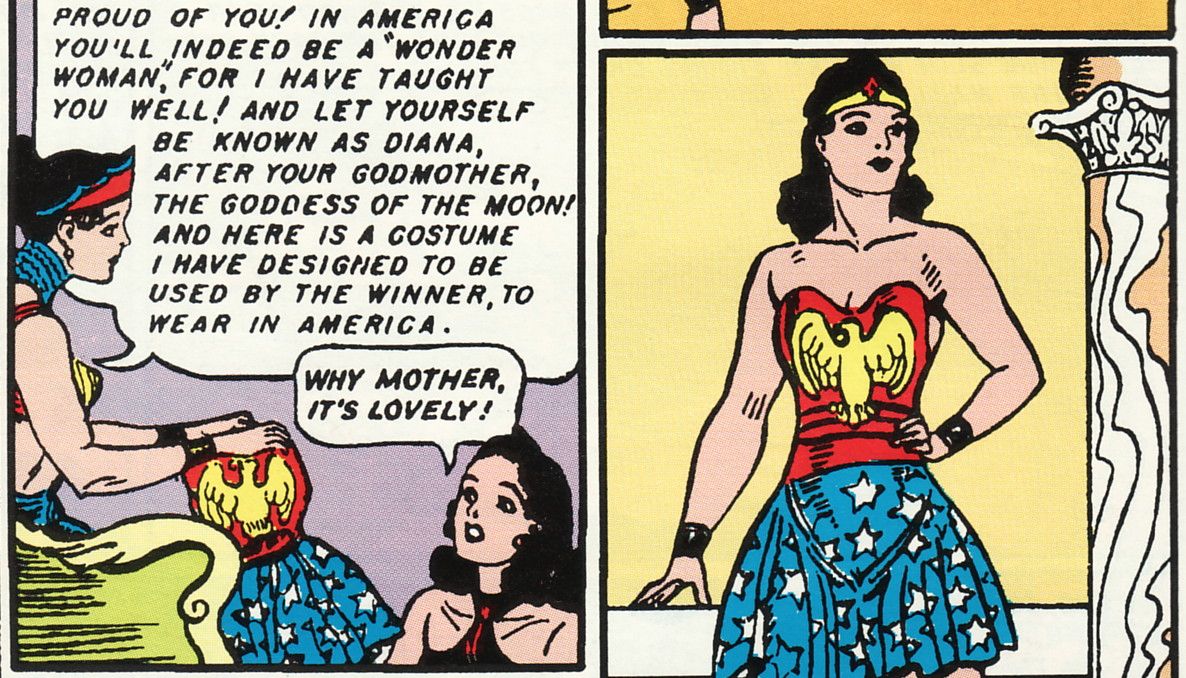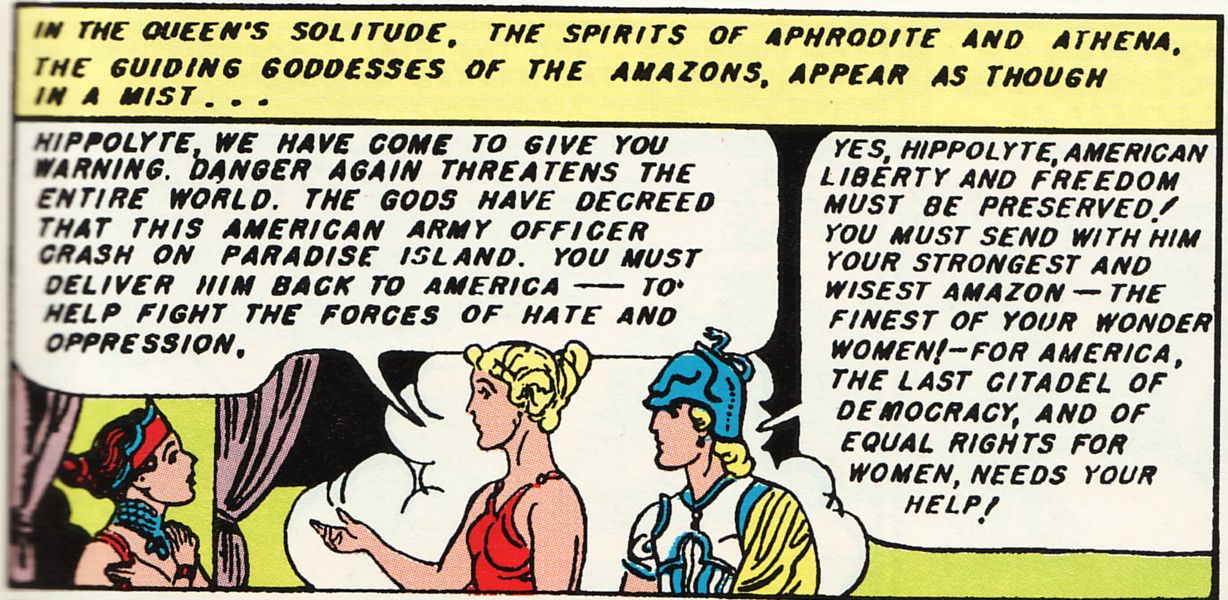My first thought when Wonder Woman with Grant [Morrison] was mentioned was ‘I don’t want her to be dressed as an American flag.’ Not because an American flag is wrong but it made no sense. She’s coming from such a rich, wonderful culture with so much iconography (Greek culture), so why does she not use that, and why would she dress up as a flag? She’s not Captain America. But at the same time, I understood that this kind of iconic color/texture is something that’s recognizable, so in that aspect it does have value. If I could reach the same design with a few differences, but make it so it’s not coming from the flag, it’s coming from a natural extension of her culture, I could live with this.
-- Wonder Woman: Earth One artist Yanick Paquette, on redesigning her costume from the ground up
Wonder Woman's costume gets a lot of attention every time someone tries to change it, but usually the discussion is about how much skin it is or isn't covering. That's old and tired, and I'm glad Paquette is thinking about it for a different reason. I'd argue it's the right reason.
One of the things that seems to stump a lot of Wonder Woman writers is her mission: What the hell is she supposed to be doing in our world? Is she a warrior or an ambassador of peace? Are those mutually exclusive descriptions or can she be both at once?
I think she can be both, in the same way that in her early years she could be a bondage fetishist while also advocating freedom. People who know a lot more about bondage than I do tell me it can be an incredibly liberating experience. Likewise, some of the biggest peace advocates I know have been career soldiers. It's a strange dichotomy, but it's real, and I can see it working in All-Star Comics #8, the first appearance of Wonder Woman.
Nazis make great villains. Most everyone agrees they were evil, and most everyone hates them. It's still true today, but it was even more true in the late '30s and early '40s, when Nazis were actually trying to take over the world. In those days, people didn't have a hard time reconciling the term "fighting for peace." That's why it made perfect sense for Wonder Woman to leave Paradise Island wrapped in an American flag. She was leaving to join an American pilot in the fight against Nazis, "the forces of hate and oppression," and her mother dressed her appropriately.
The accuracy of Athena's claim in the panel above that the United States was "the last citadel of democracy, and of equal rights for women" is a whole other deal. It's enough for us to understand, however, that American William Moulton Marston felt able to make that statement for his American audience. As far as they were concerned, it was true. It's only in looking back that a lot of us groan or snicker about it, because we -- regardless of what country we live in -- don't see the world that way anymore.
The modern worldview is more complex and global, to the point that the U.S.-centric nature of fictional heroes like Wonder Woman, Superman and the Justice League are routinely called into question. It hits Marvel, too, and the Avengers have gone worldwide during various times. Captain America gets away with wearing the flag, but very few understand why Wonder Woman still does. It made sense when she first appeared in 1941, but it's more difficult to explain in 2013.
That's why it's great that Paquette is giving this some thought. I love that he's figured out a way to include iconic elements in a new design of Wonder Woman's costume, but in a way that makes sense for a mission that doesn't involve fighting America's enemies. In that same interview, he says, "The retro-engineering of her costume into something that makes sense is already embedded into the story." I hope that means Grant Morrison has also figured out a legitimate reason for her to leave the Amazons and spend time with us. It needs to be something that threatens peace in such a way that it's worth going to war against, and I don't envy Morrison the task of writing that story in a way that will feel grounded while also not pissing off half its potential audience.


